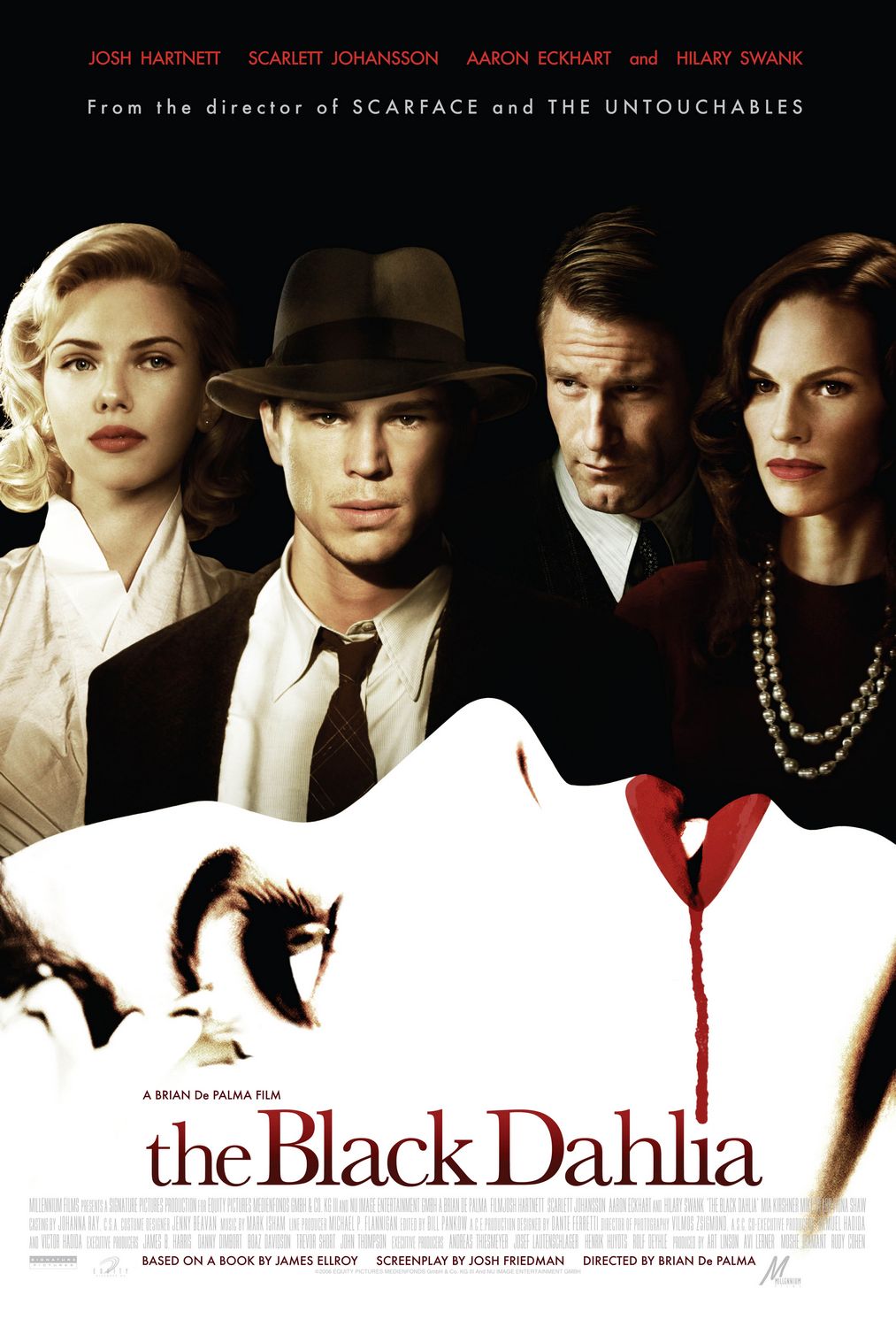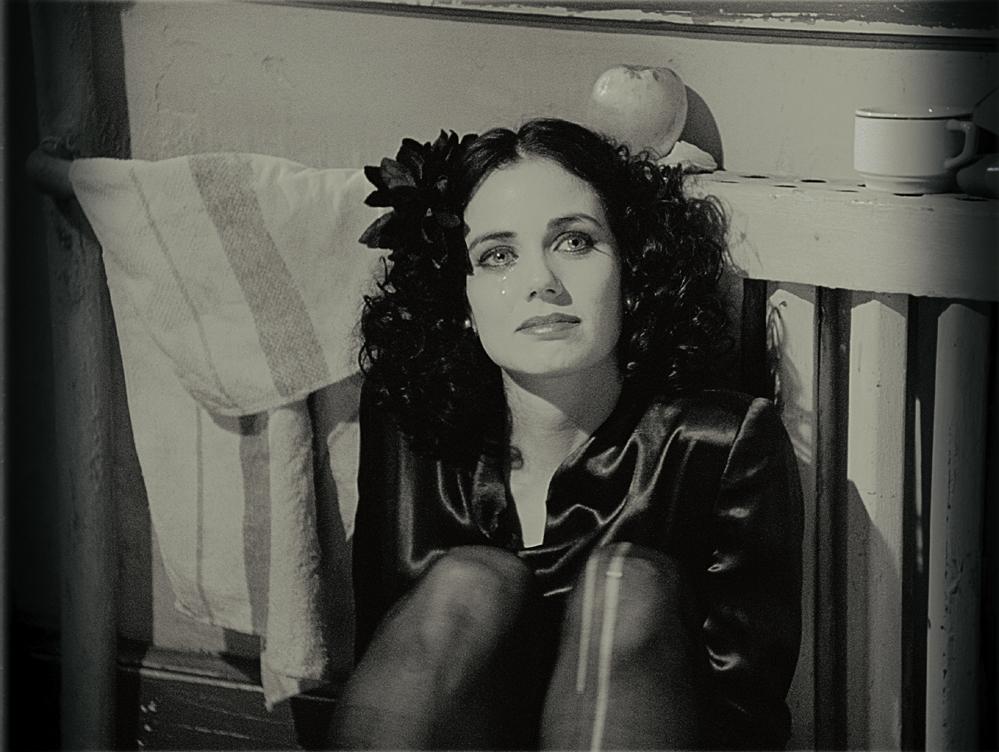David looks back at Brian de Palma's wildest film, ten years on from its release.
 The Black Dahlia is a curious artefact. It is likely to be remembered simply by virtue of being in the catalogue of Brian de Palma, even if the film’s quality is negligible compared to his biggest hitters Carrie and The Untouchables. When compared to the other famous James Ellroy adaptation, the Oscar-winning L.A. Confidential (which celebrates its own birthday, its 19th, in just a few days), de Palma’s effort certainly pales. In the career of cinematographer Vilmos Zsigmond (the film’s sole Oscar nominee), it’s likely to be a footnote in the late man’s incredible career, coming after his work with Spielberg, Cimino and Altman. The film’s stars probably took a year at most to write it off as a failure on all their parts.
The Black Dahlia is a curious artefact. It is likely to be remembered simply by virtue of being in the catalogue of Brian de Palma, even if the film’s quality is negligible compared to his biggest hitters Carrie and The Untouchables. When compared to the other famous James Ellroy adaptation, the Oscar-winning L.A. Confidential (which celebrates its own birthday, its 19th, in just a few days), de Palma’s effort certainly pales. In the career of cinematographer Vilmos Zsigmond (the film’s sole Oscar nominee), it’s likely to be a footnote in the late man’s incredible career, coming after his work with Spielberg, Cimino and Altman. The film’s stars probably took a year at most to write it off as a failure on all their parts.
Yet the film continues to fascinate - to lure you back into its craven web...
I read Ellroy’s novel back in high school, desperate for more after using L.A. Confidential in an essay, and its twisted psychology seemed a whole level deeper, its narrative construction brasher and more convoluted. The film may present an even more fractured narrative structure, but it retains the dominant theme of its characters grasping desperately into the past: Lee's obsession with the image of a dead woman; the Linscotts' crumbling facade of stature; Bucky's awkward involvement in Lee and Kay's disintegrating relationship. De Palma's adaptation has its own nostalgic obsessions, from the genre modes it inhabits to how it foolishly tries to cast its actors in the mould of the Hollywood star system that the plot makes reference to.
Josh Hartnett is the bland, handsome Glenn Ford type, mocked early on when Lee snatches the newspaper out of Bucky's hands as he drones boorishly. Scarlett Johansson is the Virginia Huston, innocent and damaged, although neither film nor actress give Kay any edge of intrigue or tenderness that she requires to make the audience invest in the central love triangle. Aaron Eckhart showcases his pre-Two Face elasticity with a performance that is somehow exaggerated yet extraordinarily dull. And Hilary Swank vamps her way on to the screen, flailing around like a vague impersonisation of a whole collection of femme fatales.
Look beyond the leads, however, and you'll find the two main reasons why its worth returning to The Black Dahlia despite its multitudinous flaws. Mia Kirshner, as Elizabeth Short, the eponymous victim, and Fiona Shaw, as twisted matriarch Ramona Linscott, each giving performances so indelible that individual moments - Kirshner's tearful gaze, Shaw's twisted smile - are seared into the memory. Their performances are so detached from the dominate mode of pastiche that they seem to have walked in from alternate planes of existence, the very rhythm and timbre of their personalities out of sync with the film around them.

Yet it's these very distinctions that make them so effective. They're performances need to be in a different register due to the purpose they serve. Elizabeth Short is exactly the vivid mystery Lee’s obsession dictates, and Kirshner gives her such emotional clarity that your own heart responds to her, too. As for Fiona Shaw, I can find no way to put this better than TFE friend Nick Davis did in his memorable review at the time:
Shaw cracks the movie open like she's breaking the shell of a lobster, and then she gobbles the movie, and then she spits it back out”.
The two actresses are absolutely mesmerising to watch, in such different ways. Although this further explodes the conceit of The Black Dahlia ever being a coherent film, the way these two performances are thrown piecemeal across the narrative effectively mimics the dismembered corpse of the title, and ultimately makes for a strangely honest adaptation. In similar ways, various aspects of the production are just as wildly inconsistent: the music’s shifts between jazz and baroque classical; the camera’s grace in a remarkable crane shot connecting two crimes scenes contrasted with the studio-bound falsity of a smoke-filled night-time close-up. I wish that the film were a great one, but such oscillating highs and lows are surely preferable to a solid workmanlike success. At its best, The Black Dahlia is genuinely awesome, an intoxicating, poisonous thicket of a film. I, for one, will never forget it.